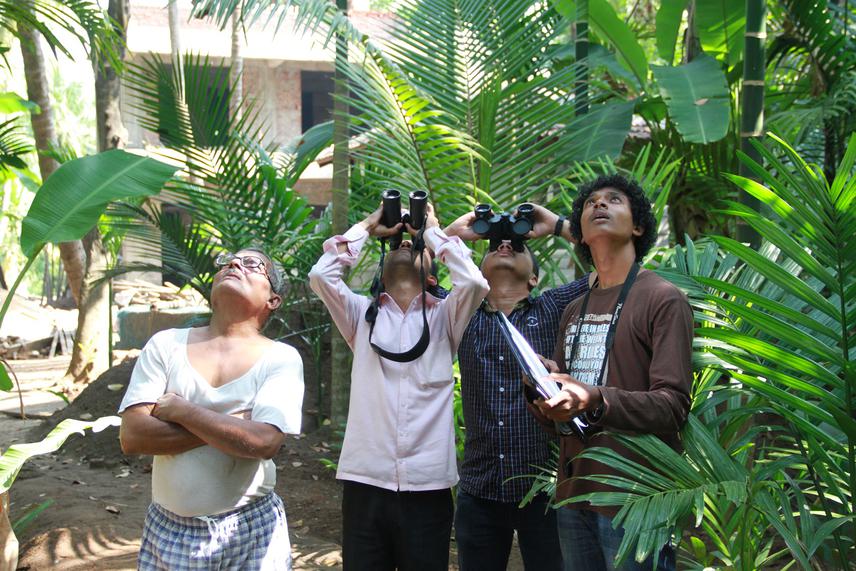Bhau Katdare
Other projects
14 Jul 2014
The Konkan Vulture Project: Vulture Food Base Trend Due to Socio-Economic, Geographical and Policy Factors
Monitoring of vultures foraging at the identified carcass dumping grounds and awareness drives about ban on veterinary usage of diclofenac in these villages

Vulture monitoring at Shrivardhan.
As a part of the Konkan Vulture Project Sahyadri, identified vulture colonies and protected with the help of local community. Long billed vulture colonies are along the Western Ghats located at Vihali (dist. Ratnagiri), Patnus, Nanemachi and Ranawadi (all 3 dist. Raigad). White rumped vulture colonies are along the coast located at Shrivardhan and Chirgaon (both in dist. Raigad). In all there are 70 nests in this region all are located very close to human settlement. At least one carcass dumping ground exists within the radius of 15-20 Km of every vulture colony.
As a part of 1st phase, Sahyadri conducted survey of the entire Konkan region to identify villages having carcass dumping practice and villages where vultures are sighted regularly.
Sahyadri has set the following objectives for this grant:
• Continuation of monitoring of 9 vulture feeding grounds with the help of local community rangers
• Focused awareness drives with the help of Animal Husbandry Department around 9 vulture feeding grounds
• Ensure higher number of villagers use vulture safe carcass dumping ground
The project has following phases:
Monitoring of designated carcass dumping grounds by local community rangers (Dec 2015 – Nov 2016)
• Appoint local community rangers (Dec 2015) – Appoint and train a local person to monitor carcass dumping ground where vultures are sighted regularly.
• Monitoring carcass dumping ground – Local community rangers will monitor the designated carcass dumping ground regularly to check vulture sighting
• Record Keeping – Community rangers will be trained to keep records of carcass dumping date, number of vultures sighted
• Assistance – Sahyadri’s team will undertake regular visits week to all carcass dumping grounds to check record keeping and any assistance required by local community ranger
Anti-Diclofenac Awareness Drives (Dec 2015 – May 2016, Oct 2016 – Nov 2016):
• Encourage locals to use designated carcass dumping ground
• Ensure diclofenac is not being used at all for veterinary purpose by meeting veterinarians and para-veterinarians
• Connect with villagers by conducting
• Door to door meetings
• Village level meetings
• Cattle health check-up camps
Dissemination:
• Workshop with all stakeholders to communicate results and future plans
• Reporting: Final reports shall also be submitted to SAVE, BNHS and other organization related with vulture conservation